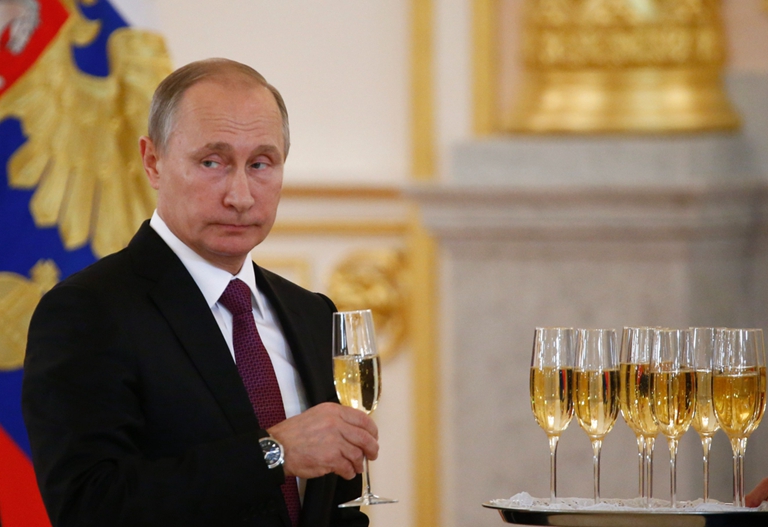
US-Russian Relations Seem To Be Improving. Will This Influence Closen Ties between China and Russia?
Trump’s team revealed this news rather cautiously, but also stated that Trump said he would very much like to maintain strong long-term relations with Russia and the Russian people. Analysts took the things Trump and Putin said about each other during the American general election to be empty praise, but Trump has criticized Obama’s administration and said that Putin was a better leader than Obama. Putin then described Trump as a “remarkable and talented person.” International strategists are forming the opinion that the Trump era will bring improved U.S.-Russian relations. Aside from the comments made by Trump and Putin, this opinion is also held for the following reasons: firstly, because the Obama government’s opposition to Putin went too far, and is now likely to retract. Secondly, because Trump has shown a tendency to prioritize domestic policy, and easing power relations could reduce external restrictions.
As U.S.-Sino-Russian relations have long been seen as a “big triangle,” U.S.-Russian relations could improve – and a topic of public discussion has been whether or not these improving relations could influence the close relationship between China and Russia in the coming years. What first needs to be pointed out is that U.S.-Russian relations are highly strained. The U.S. led Western countries to place sanctions upon Russia, which is abnormal. Bilateral relations between the two countries have returned to a certain extent without inconveniencing China. The starting point for improving U.S-Russian relations is clearly not “dealing with China” but rather easing their strained relations.
U.S.-Russian relations fundamentally require the removal of some of the factors that are creating bilateral antagonism. These include: the U.S. moderating NATO’s strategy to expand eastwards, ceasing the deployment of mid-range missiles in Eastern Europe, no longer deploying NATO troops, or instead withdrawing them entirely, and recognizing Russia’s interest in the Ukraine. Additionally, the U.S. and Russia need to increase coordination in Syria and reach a compromise on the future outlook of the Assad regime. It seems that Washington has limited room for maneuver, and Moscow, already pushed into a corner, has no room left to maneuver either, while America’s European allies are worried that Washington will abandon it all.
Closer ties between China and Russia have been facilitated through a series of long-term actions, and this has already brought both countries stable, strategic profits. Sino-Russian cooperation is good for Moscow, and it wasn’t bought for a special price. Therefore Russia has no reason to sacrifice Sino-Russian relations for developing U.S.-Russian relations.
The basic form of the U.S.-Sino-Russian triangle is decided by the structure of power, whose most important function is to achieve a balance of power. When the U.S. is the strongest country of the three and it carries out clear military offensives, China and Russia become even closer in accordance with the logic of international politics. Even under normal circumstances, the better Sino-Russian relations are, the more positivity both countries feel toward developing relations with the U.S. Trump faces multiple challenges; he cannot put the focus and resources for reform into foreign relations with one specific country. There are also many restrictions on power relations, and this is only becoming more frequent. Trump needs to change power relations, but may only be able to make adjustments to strength and priorities, as large changes are very difficult to make. Regardless of whether it is U.S.-Russian relations or U.S.-Sino relations, the “temperature” of these relations is very easily affected, and in this respect, Trump has the most room to maneuver. The atmosphere between two countries is important at certain times, but its significance is, in reality, not enormous.
Sino-Russian relations will certainly be the more stable relationship of all the bilateral relations between the three countries for a long time into the future; it has been tested since Yeltsin’s time until today. Since Russia and the West became hostile toward each other, this relationship has been through many changes. Sino-Russian relations are now secure; both countries now stand back to back with one another, and carry no burdens in shaking hands with leaders of other countries. The leaders and diplomatic elite of both countries all greatly value Sino-Russian cooperation, and this is what has created good relations.


